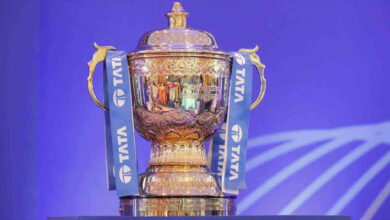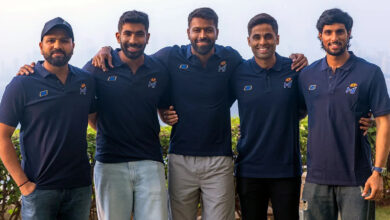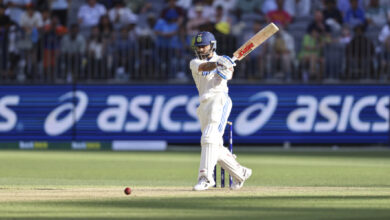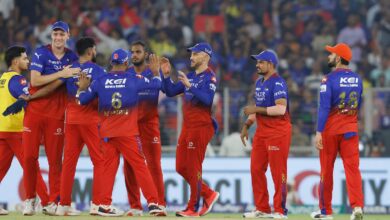Why Saudi Arabia doesn’t give a hoot about West’s sportswashing critique

When the leagues in Europe and Latin America unfold next season, the gaze of billion football voyeurs could pause briefly on the blooming desert megapolis of the Middle East: Saudi Arabia, the most powerful country of the geographical entity. then, two of the most popular footballers in Europe, those that defined the game in the last two decades, its fandom, its economics and policies, would be kicking the ball around in ostentatiously revamped arenas fitted with the latest cooling technology.
Both Lionel Messi and Criano Ronaldo are past their peak years, few clubs in Europe would break the bank to acquire their signature, but for Saudi, their acquisition, even if they are traipsing through their twilight years, is an accomplishment worthier than every pound they splurge on them. The money involved is incredulous. Ronaldo is on a 200-million-dollar-a-year deal at Al Nassr. Messi, should the transfer progress, could earn twice that amount at Al Hilal. From a purely sporting perspective, it seems counter-intuitive to invest such hefty sums of two footballers in the sunset of their careers, no matter how great they once were. The clubs in the country might stop with them, in the next few years, it could be the preferred destination of most semi-retired footballers, fed with similarly astronomical sums. They could rather invest in building infrastructure, hiring the best coaches in the world, or installing a robust system.
But the ambition of Saudi Arabia is not to become a football superpower alone, but rather rebrand its image, to change the lens through which the world watches, judges and perceives them, to host the largest sporting events in the world like the Football World Cup and the Olympics, to make it more amenable for sporting investments.
Messi with his wife and kids in Saudi Arabia. (Saudi Tourism Authority)
It’s in sync with the nation’s image makeover thrust, the liberalisation measures initiated crown prince Crown Prince Mohammed bin Salman. His ambition is best embodied the construction of the new city Neom, a 500-billion-dollar metropolis dubbed the City of Future in north-western Saudi Arabia that could become the most futuric city in the world. The world’s largest hotel, worth four billion dollars, is springing up in the Holy City of Mecca. In other reforms, movie halls opened for the first time in more than 35 years, and women gained the right to drive and segregation of the sexes was relaxed in public places.
Of course, Saudi has billions to spend, its oil resources vast; its financial clout immeasurable. When the world is tightening up its finances, Saudi is spending freely. But this is not like a brat’s whimsical spending. There is a method behind the madness, for the Prince understands the value of the sporting realm’s potential and power as a policy instrument to secure its future once the oil resources dwindle. It would not in the near future, but it would invariably one day, and before that happens, Saudi could be metamorphosed into a tourism hub, a destination of religious, cultural and sporting tourism, which ensures a steady stream of income. Moreover, Saudi’s population is young, with about two-thirds under 30.
Parallels could be struck with Qatar in its build-up to bidding for the World Cup and then in the lead up. When sporting ambitions began to sprout, Qatar’s football clubs began to lure semi-retired footballers from Europe to the league, a sports academy was set up, an Asian Games was hosted and began to pick and poach talented athletes from Africa, eased the citizenship norms and nurtured an identity of spots savviness. An artificial sporting culture was manufactured. And the World Cup turned out to be a blockbuster.
Criano Ronaldo greets Saudi fans during his official unveiling as a new member of Al Nassr soccer club in in Riyadh, Saudi Arabia, Tuesday, Jan. 3, 2023. (AP)
But Saudi is Qatar on adrenaline, its outlay and ambition vaster. The pace of their growth has been supersonic. In 2016, sports was identified as a priority field in the Prince’s Vision 2030 economic development program. “A big part of the change within the kingdom is the sector of sport and growing the sector of sport,” he said while making the presentation.
A clutch of high-profile sporting events were to descend on the sand dunes. From golf (the parallel LIV tour) to NBA exhibitions games, WWE to horse racing ($20 million Saudi Cup, the world’s richest horse race), Formula One (on the fastest track) to sponsoring the Women’s Football World Cup in Australia and New Zealand), they have been aggressively making the country a sporting ‘Mecca’ of sorts. Its public investment fund owns the most improved club in the English Premier League this season, Newcastle United. It envisages to host a T20 league; it’s already entered the T20 cricket landscape, the name of the world’s richest oil company, Aramco. entering the IPL. Aramco Player of the Match has entered the IPL lexicon as CRED Power-Play.
An Ernst and Young report estimated that the sporting events industry in Saudi Arabia is shooting up eight percent annually, rising from $2.1 billion in 2018 to an estimated $3.3 billion 2024. The contribution of sport to national GDP grew from $2.4 billion in 2016 to $6.9 billion in 2019 as the number of international events in Saudi Arabia doubled from nine in 2018 to 19 in 2019. In the Forbes l of the ten richest athletes, four have Saudi connections (Ronaldo plus golfers Dustin Johnson and Phil Mickelson).
The western media might cry about sports-washing, but had not the USSR and USA sportswashed during the Cold War? Had not England? Had not Mexico? It’s pretentious, a sort of virtue-signalling to bury their own shameful atrocious past. Anyway, a nation, however authoritarian it could be, cannot be ridiculed for nursing sporting ambitions. Yes, the country is imperfect, as are most other countries too.
The investment spree is backed up results on the field too. Last World Cup, Saudi notched a famous victory over eventual champions Argentina. In 2021, Saudi Arabia’s Tarek Hamdi won silver in karate at the Tokyo Games. A year later, Fayik Abdi became the first Saudi to participate in the Winter Olympics in Beijing.
But nothing would match the impact of Ronaldo and Messi playing in their league. And that could be the catalyst of Saudi’s ambition to be a global player in sports. It might not possess the best footballers on the planet, but has the financial depth to procure the services of two of the greatest to have graced the game.







